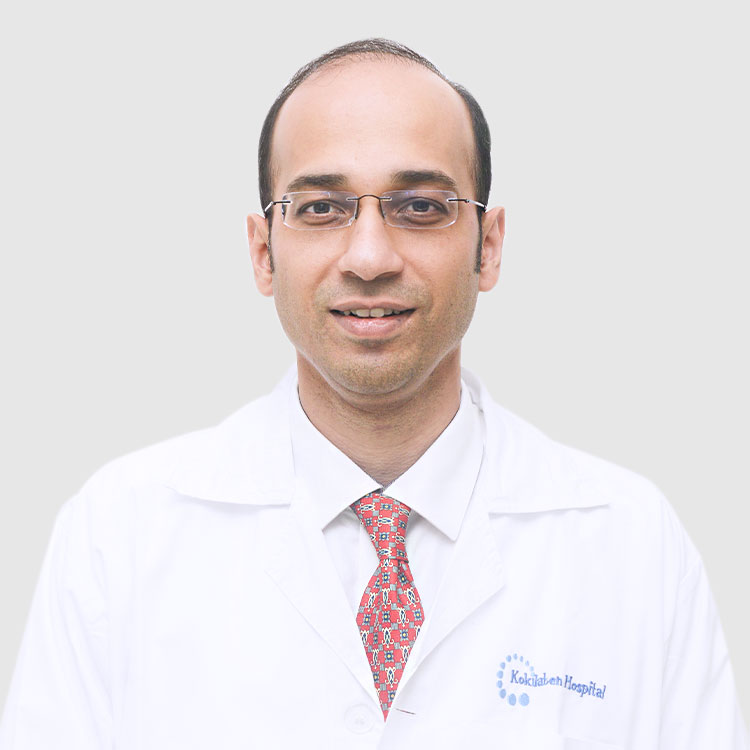Aortic stenosis is a build-up of calcium deposits on the valve, which causes it to narrow and reduce blood flow to the rest of your body.
Generally, there are no outward symptoms.
These could also be symptoms of heart failure. If you have any these symptoms and have been diagnosed with heart failure, ask your doctor to also test for aortic stenosis
Factors associated with aortic disease include:
Calcium build-up on the valve : With age, heart valves may accumulate calcium deposits.
Birth defect: Some people are born with an aortic valve that has only one or two leaflets instead of three. This may not cause any problems until adulthood, at which time the valve may begin to narrow or leak.
Rheumatic fever: This may result in scar tissue on the aortic valve, which can narrow it or can create a rough surface where calcium deposits can collect.
Radiation therapy: In rare cases, calcification of the aortic valve can occur more quickly in patients who have received radiation treatment to the chest.
Aortic stenosis is a common public health problem affecting millions of people around the world. It is estimated that up to 12.4 per cent of people over the age of 75 have aortic stenosis. About 80 per cent of adults with symptomatic aortic stenosis are male.
Severe aortic stenosis is a very serious problem. Without treatment, half of the people who feel sick from this problem die within an average of two years.
Over time, the leaflets of your aortic valve become stiff, reducing their ability to fully open and close. When the leaflets dont fully open, your heart must work harder to push blood through the aortic valve to your body. Eventually, your heart gets weaker; increasing the risk of heart failure (Your heart cannot supply enough blood to your body).
Youll probably start by first seeing your family doctor or cardiologist who may then refer you to a multidisciplinary Heart Team at a local hospital.
Before your appointment, check with your family members to find out if any close relatives have been diagnosed with cardiac disease. Knowing as much as possible about your familys health history will help your doctor make informed decisions.
5-year survival rate (distant metastasis) of lung cancer, colorectal, breast cancer, ovarian cancer and prostate cancer compared to severe inoperable aortic stenosis.
Auscultation : Your cardiologist will use a stethoscope to listen to the sounds of your heart.
Electrocardiogram (ECG): Sensors are attached to your skin to measure the electrical impulses given off by your heart, displayed as waves on a monitor or printed on paper.
Chest X-ray : An X-ray image of your chest allows your doctors to check the size and shape of your heart. A chest X-ray can also reveal calcium deposits on the aortic valve.
Echocardiogram : This is also known as an ultrasound; it uses sound waves to produce an image of your heart, which helps your doctors closely examine the aortic valve.
Cardiac catheterization : In this test, a dye is injected into your heart through your arm or groin to make your heart more visible on an X-ray.
Treatment for aortic stenosis depends on how far your disease has progressed. If your stenosis is mild, medication may be prescribed to help regulate your heart beat and prevent blood clots. However, if the severity of your stenosis progresses your doctor may recommend replacing your diseased aortic valve. Severe aortic stenosis cannot be treated with medication. The only effective treatment is to replace your aortic valve.
TAVI may be a better option for people who have been diagnosed with severe aortic stenosis depending on their risk for open-heart surgery. TAVI (sometimes called transcatheter aortic valve replacement or TAVR), is a less-invasive procedure than open-heart surgery. This procedure uses a catheter to implant a new valve within your diseased aortic valve. TAVI can be performed through multiple approaches; however the most common approach is the transfemoral approach (through a small incision in the leg). Only professionals who have received extensive training are qualified to perform the TAVI procedure. It is a properly trained and dedicated multidisciplinary thorough evaluation to determine the most appropriate treatment option for you.
Aortic valve replacement through open heart surgery is another option for treating severe aortic stenosis. Most open heart surgeries are performed through an incision across the full length of the breast bone, or sternum. Occasionally, open heart surgeries can be performed through smaller incisions. Open heart surgeries, including those performed through smaller incisions, both require the use of a heart lung machine which temporarily takes over the function of the heart. During the procedure, the surgeon will completely remove the diseased aortic valve and insert a new valve. There are two different types of surgical valves: mechanical (man-made material) and biological (animal or human tissue).
Please consult Aortic Valve Clinic for more information on aortic valve replacement and its associated risks. Our experts will recommend the best treatment option for you, based on your overall health.
First Floor, Department of Cardiac Sciences, Kokilaben Hospital
Timings : Monday, Tuesday, Friday and Saturday - 10 am to 1 pm
Wed - 5 pm to 8 pm
Thursday - 3 pm to 6 pm
For any query, please call on (+91 22) 3093 7198 (Monday to Saturday between 9 am to 5 pm)

Adult Interventional Cardiology